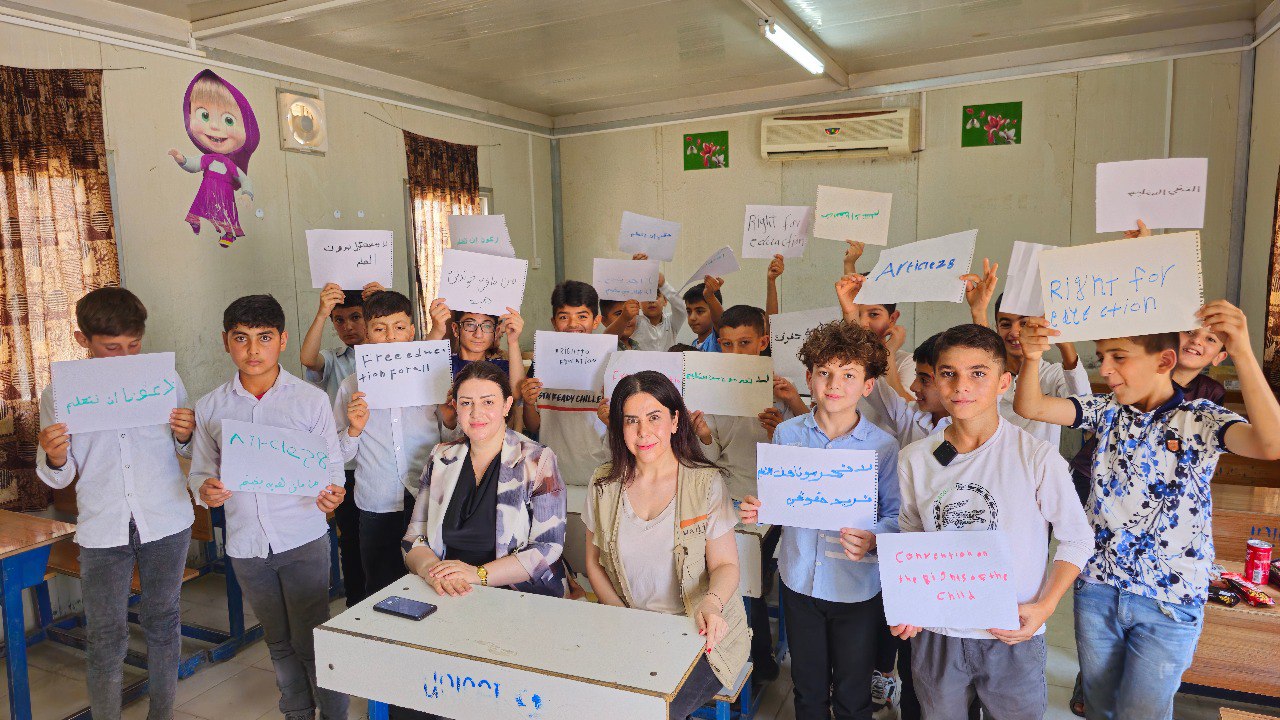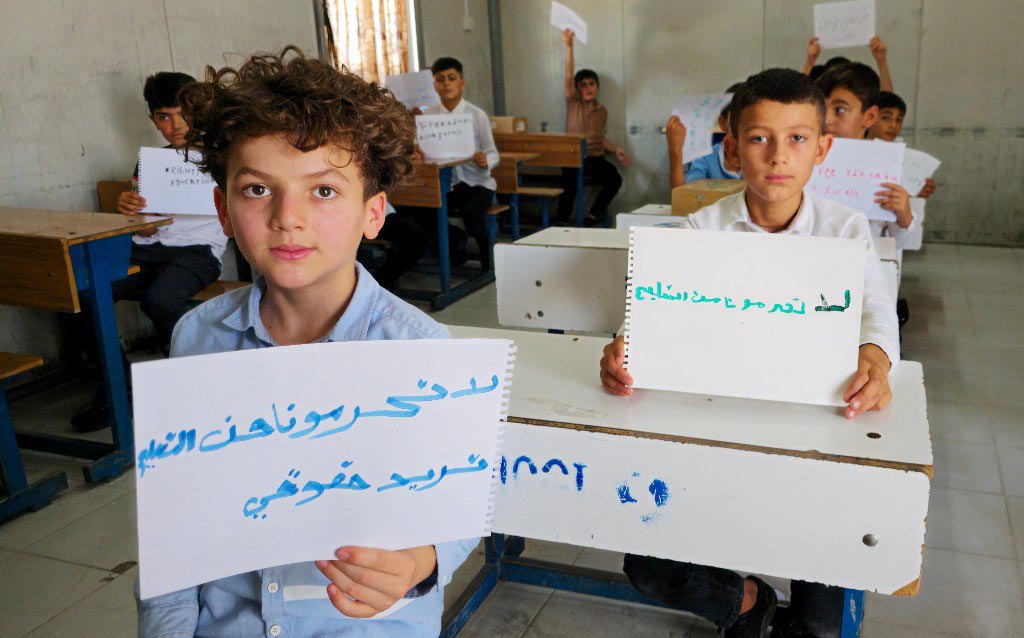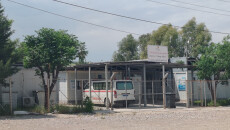Saeed Haji Hama, a primary school student in Khanyi camp for Internally Displaced Persons IDPs, participated with his colleagues in a campaign to protest against the Iraqi government’s decision to close schools in IDP camps.
“We want the government not to close our school and allow us to study,” said Haji Hama, holding up a piece of paper on which he wrote, “Do not deprive us of education... We want our rights.”
The campaign, supervised by the Wadi, a non-profit, non-governmental German-Iraqi organization, was launched on International Children’s Day, on June 1, in two camps for the displaced people in Dohuk Northern Province. It aims to educate children about the dangers of deprivation of education if the camps are closed.
The Iraqi government decided to close all its representations in the Iraqi Kurdistan Region IKR, including those funded by the Iraqi Ministry of Education, next July. These representations supervise the schools that were opened for displaced people in the three provinces of the IKR ten years ago, for 155,000 students.
Haji Hama and his colleagues say that if the camp is closed and they return to war-torn Shingal (Sinjar), it will be difficult for them to continue studying, “because we have a good school and qualified teachers in the camp. We do not have any problems. We do not know whether we will be able to continue studying in Shingal or not.”
Most of the primary school students were born in the camps, after that the extremist militants of the Islamic State of Iraq and Syria ISIS forced their families to flee their areas in August 2014. Some of them had never left the camp in their lives.
The decision will be effective from August 1st as part of the Iraqi government’s efforts to force the IDPs to return to their original areas. However, the decision provoked the anger of the students and their families, as some of them organized a protest gathering in front of the Mosul Education Representative Office in Dohuk Northern Province last March.
Chiman Rashid, the representative of the Wadi in Dohuk, told (KirkukNow), “The issue of ensuring the right to education for displaced people residing in camps has always been among our priorities, so after the Iraqi government’s decision was issued, we thought of launching this campaign to know what will be the fate of education for displaced children.”

“We are aware of the education situation in Shingal district... We want to make children aware that education is one of their rights that they must demand so that they are not deprived of education.”
The Iraqi Ministry of Immigration and Displacement decided to end its duties in the camps for the IDPs at the end of July 2024, based on the Council of Ministers’ decision regarding the return of the displaced, which includes a series of other measures, as increasing the financial grant allocated to each family from 1.5 million Iraqi dinars IQD (USD1,000) to four million dinars.
To implement the decision, the Iraqi government will close all health, education, and other representations in the governorates of Erbil, Sulaymaniyah, and Dohuk.
Studying in schools affiliated with education representations is in the Arabic language. There are 69,000 pupils in Erbil province, 33,000 in Sulaymaniyah, and 53,000 in Dohuk from first grade one to nine.
The campaign lasts for 15 days. “We will extend the campaign, if necessary,” Chiman says
"We have two goals. The first is to put pressure on the Iraqi government and the relevant parties to retract the decision to close the camps, because the displaced students of Shingal are suffering from problems, and their problems will increase when they return home."
According to Chiman, the second goal is that “education is one of the most basic rights, and we fear that they will be deprived of this right if they return to Shingal due to the scarcity of teaching staff, schools, and other supplies.”
In the Arabic department of Shingal education, 25,000 students are divided into 80 schools. Of these, 17,200 pupils attend primary schools.
The federal government has shut all 55 camps located in the areas under its authority and exchanged accusations on more than one occasion with the officials of the Kurdistan Regional Government KRG regarding the issue of the return of displaced persons and the closure of camps in the IKR.
There are more than 600,000 IDPs in the Kurdistan Region, some of whom are living under tents in 26 camps, 16 of which are in Dohuk, housing 26,000 families, most of whom are Nineveh residents.






